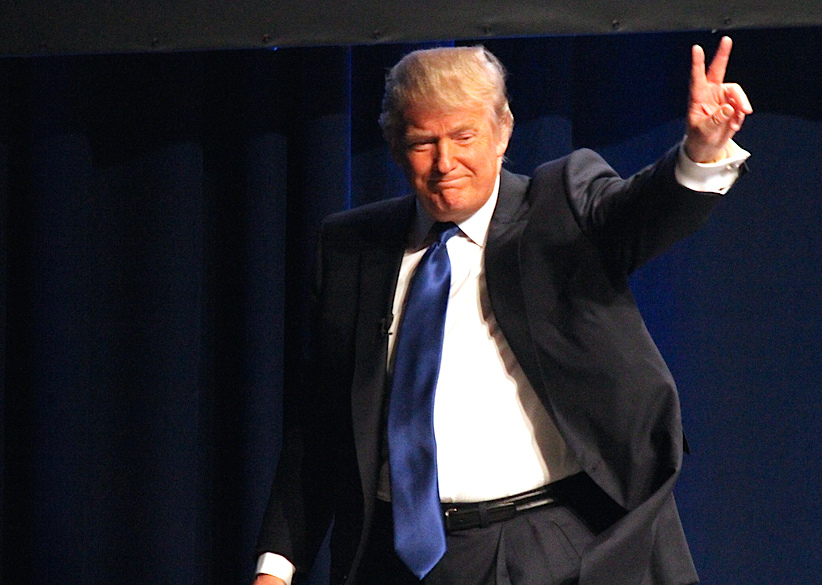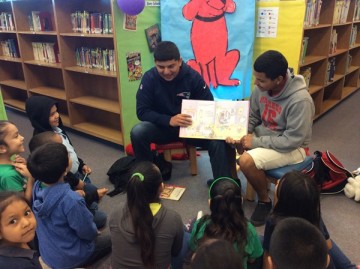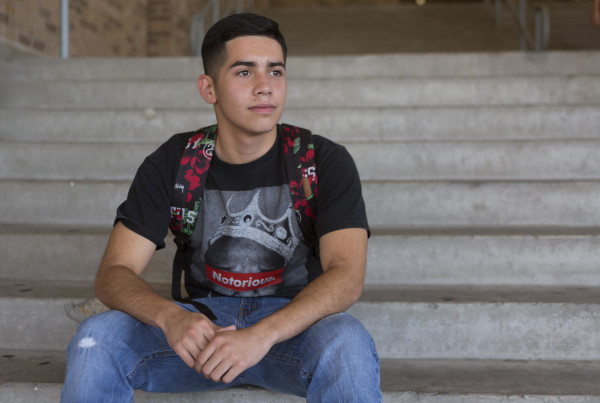Tuesday, it was the iconic song from “Rocky” – “Eye of the Tiger” – used at the Kim Davis and Presidential nominee Mike Huckabee rally.
Wednesday, Donald Trump, another Republican hopeful, was lambasted by R.E.M’s Michael Stipe for walking on stage to “It’s the End of the World As We Know It (And I Feel Fine).”
Bruce Springsteen and John Cougar Mellencamp have also called out presidential candidates for using their music on the campaign trail without authorization.
Dana Gorzelany-Mostak is an Assistant Professor of Music at Georgia College. She writes about music and American presidential politics.
Gorzelany-Mostak says that the music candidates pick to walk out and rock out to isn’t an afterthought. In fact, sometimes the soundtracks go through extensive vetting processes.
“Some teams spend a lot of time and energy developing a music strategy and others do not,” she says. “One example might be Hillary Clinton in her 2008 primary campaign. Apparently she had a whole group assembled that put music through a rigorous vetting process to determine what would be played at her rallies. But other candidates… selections are made on an ad hoc basis.”
One of the main objectives is to get the crowd riled up and ready to rock. But do candidates ever think about what the ramifications might be if the performer or the songwriter’s politics don’t square with the politician’s own? Gorzelany-Mostak says yes.
“Even when politicians go through the legal channels that are necessary to secure the rights to music I think they still have an awareness that the artists may indeed respond negatively,” she says. “I think in the case of Donald Trump and Mike Huckabee – who are the two recent examples that come to mind – I think their entire reputations as candidates are built upon the fact that they’re not afraid of taking unpopular positions.
“Trump’s remarks as of recent have offended and alienated many different groups. Already in this campaign he’s offended feminists, Latinos, the department store Macy’s, NBC Universal…. He’s sort of seen as a bully, but to his supporters he’s a candidate who’s not afraid to assert himself.”
She says that while the particular music selections that accompany the candidate as he walks on the stage bring a certain “cultural cachet” to the campaign, it may be part of the candidates’ campaign strategy to defiantly use music from an artist whose views oppose their own.
“Even the ensuing battles that play out over social media are part of a candidate’s music strategy that ultimate helps their total campaign strategy as well,” she says.














